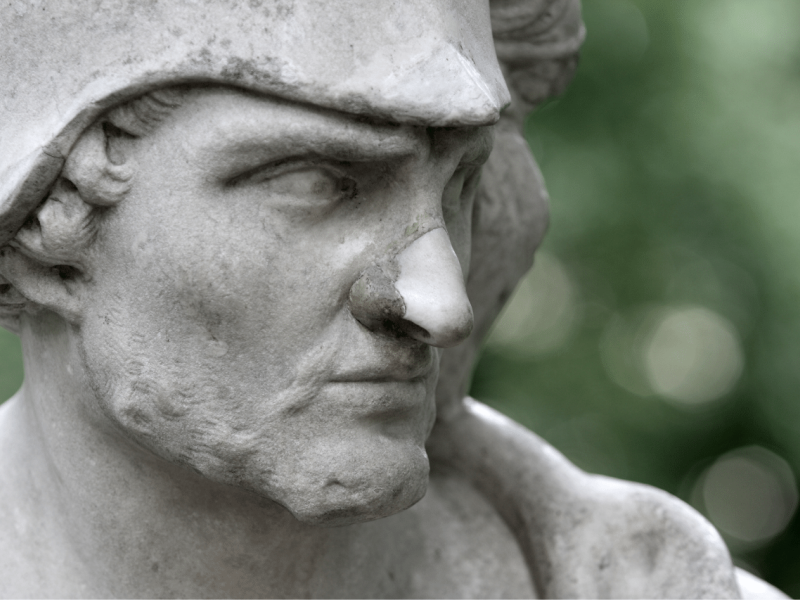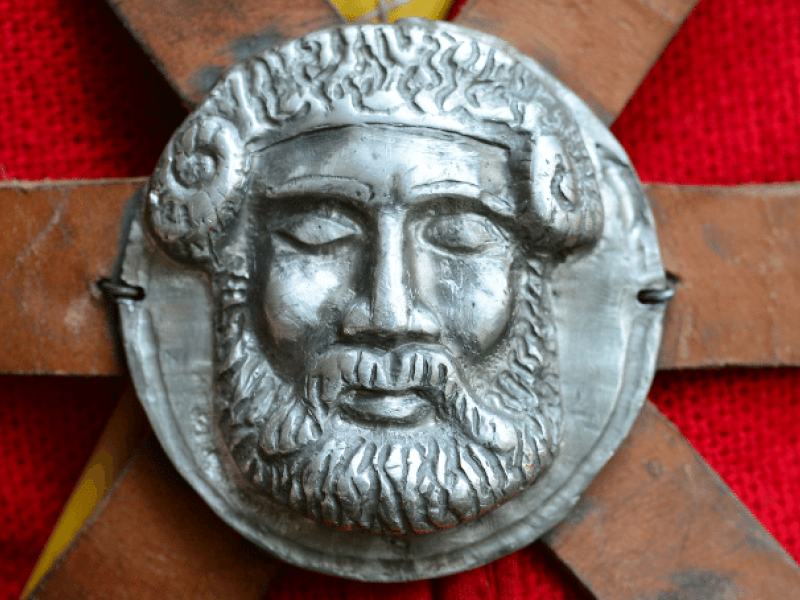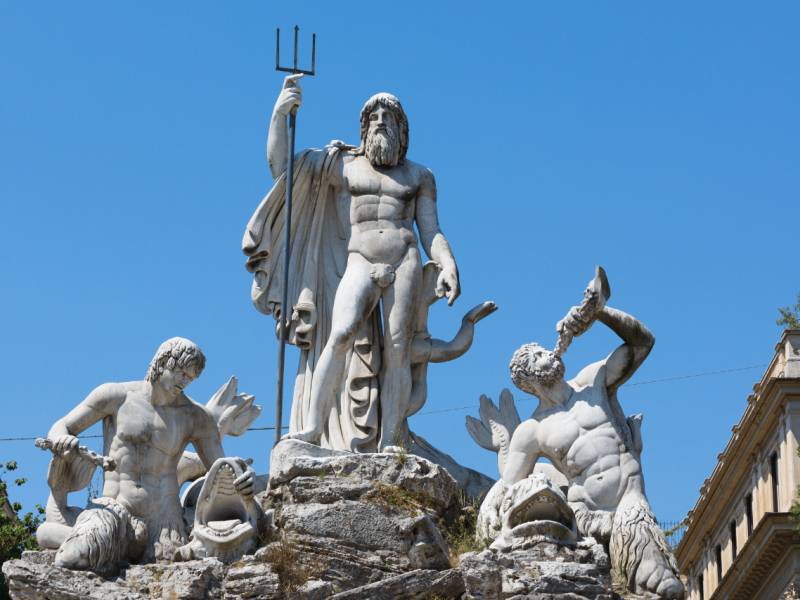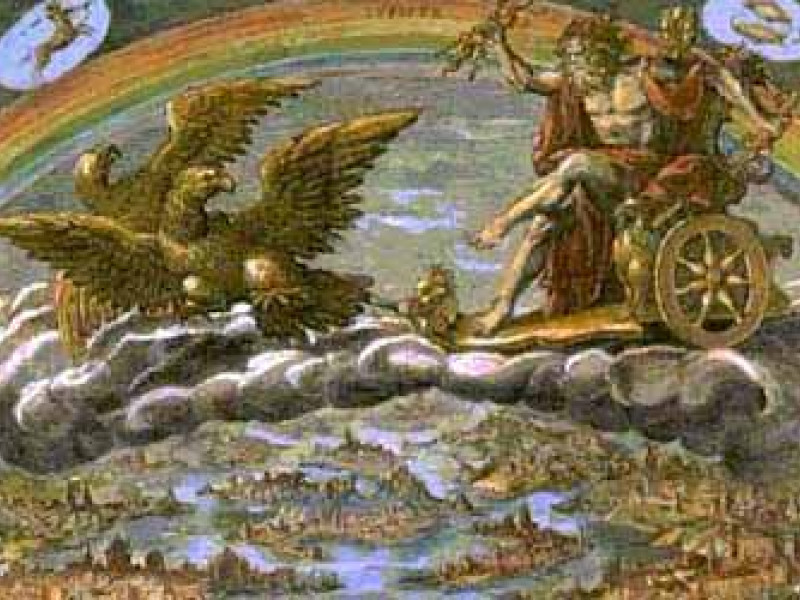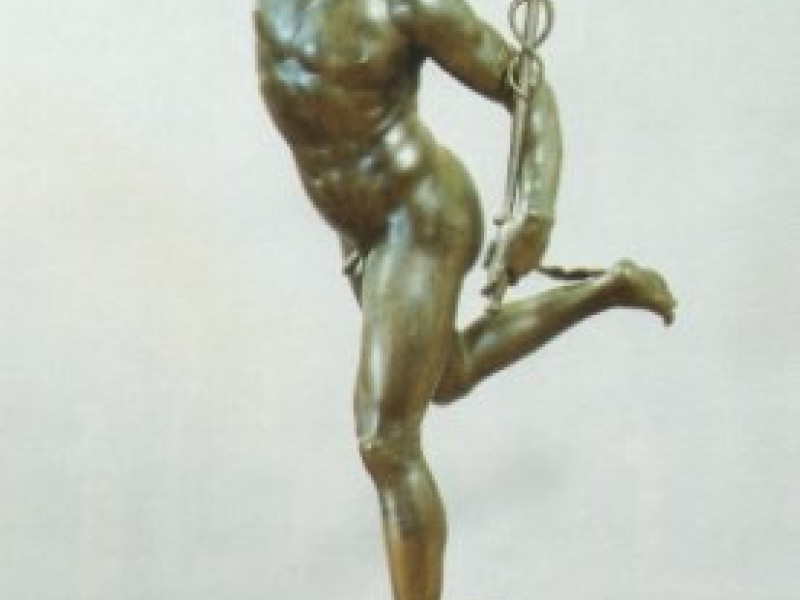Mars
The Roman god of war. Next to Jupiter, Mars was the second most powerful god, and formed part of the triad of Roman gods with Jupiter and Quirinus.
Originally, Mars was the god of agriculture. The Romans and other Italian people believed that Mars protected their crops and their animals from diseases. Mars was associated with two agricultural festivals in March and October. His festival, called Armilustrium, was held on October 19. By then, the Romans would normally have finished their military campaigns for the year, because winter was approaching. The ceremony required the purification of the arms. His main temple was Campus Martius, which was the exercising ground for the army.
As the god of war, Mars was also called Gradivus and Quirinus. The Romans saw Mars Gradivus presiding over the beginning of the war, while Mars Quirinus oversaw its end. However, the Romans had earlier distinguished Quirinus as a separate god from Mars.
His priests known as Salii were first appointed during the reign of Numa. They served as guardians of the Ancile, a shield sacred to Mars.
Because he adopted many of the warlike attributes of Ares, Mars was seen as the supreme warrior god and was widely respected by the legionaries, compared to his hated Greek counterpart.
In Roman myth, Mars was the son of Jupiter (Zeus) and Juno (Hera). Mars was the father of Romulus and Remus, after he slept with Rea Silvia, daughter of Numitor, the king of Alba Longus. Romulus was the founder of Rome.
Mars rode in the chariot with Bellona (Enyo), goddess of war, and Discordia (Eris), goddess of strife, as his companions. His retinue included Metus ("fear"), Demios ("dread"), Phobus ("alarm" or "panic") and Pallor ("terror").
His favourite animals were the woodpecker Picus and the wolf. The month of March was named after him, as was the Roman version of Tuesday, which is called dies Martis (Mars' Day) in Latin. The Equiria was held in honour of Mars by holding chariot races on February 27 and March 14.
In astronomy, Mars is the 4th planet in our solar system. The planet is smaller than Earth, and the thin atmosphere is mainly made up of carbon dioxide, giving the planet its reddish colour. Mars has two satellites or moons called Deimus (Fear) and Phobos (Panic), which are actually named after Mars' sons by Aphrodite, in Greek mythology.
By Jimmy Joe

